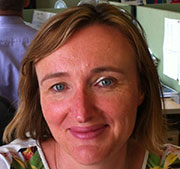 The “Keep Calm and Carry On” slogan is a familiar sight on everything from posters to mugs, but has this sentiment, the embodiment of the famed Dunkirk spirit, been forgotten in modern Britain?
The “Keep Calm and Carry On” slogan is a familiar sight on everything from posters to mugs, but has this sentiment, the embodiment of the famed Dunkirk spirit, been forgotten in modern Britain?
A head to head debate on thebmj.com discusses whether emotional restraint or openness is a healthy response to adversity—a stiff upper lip versus letting it all hang out.
Kathryn Ecclestone is particularly concerned about attempts in schools to encourage emotional openness which, she writes, are poorly thought through and have little evidence to support them.
She writes: “The unfettered promotion of emotional openness creates infinite demand for intervention and arguments between proponents of different approaches. This diverts specialist resources from real need. Instead, we should regard everyday life as sometimes trying and difficult; see restraint as a normal response; and curb interventions that soothe fears of crisis but pathologise people’s own emotional coping strategies.”
However, Ben Robinson and Sarah Wheeler argue that “emotional expressivity” can aid physical recovery, citing studies of patients with breast cancer, and say that advocating a “stiff upper lip” is dangerous.
“Doctors must recognise the value in encouraging patients to speak about their experience—in all its joys and its adversities. Such expression improves the health of patients and the trust between patient and professional that is so crucial to effective care.”
There was no restraint in the aftermath of the case of Baby P, the little boy murdered by his parents in 2007, and whose case sparked outrage in many quarters. A BBC television programme this week looked at the case of Peter Donnelly, and questioned whether the hounding of the professionals involved in his care was justified. Sharon Shoesmith, the director of children’s services at Haringey Council, on whose child protection Peter appeared, learned she had been sacked from her job when Ed Balls, then secretary of state for children, schools, and families, announced it at a press conference.
The programme also looked at the case of locum paediatrician, Sabah Al-Zayyat, who assessed Peter at St Ann’s Hospital two days before his death. The hospital’s team of four consultants was two posts down, with another on long term sick leave.
Both Al-Zayyat and Shoesmith were vilified in the media and both received death threats. The police, by contrast, who had also been involved with the Donnelly family escaped vilification.
Reviewing the programme for The BMJ, Emma Parish considers the role of professionals who come across vulnerable children in their working lives. “Professionals in healthcare, the police, social services, and education try to make the systems impenetrable to the missed opportunities for communication; search for the patterns that can be hard to spot; and ensure we have done all we can to protect children.”
“However, our greatest challenge is doing all this but knowing that the outcome may still be the same,” she says.
Anne Gulland is currently community manager on doc2doc.
